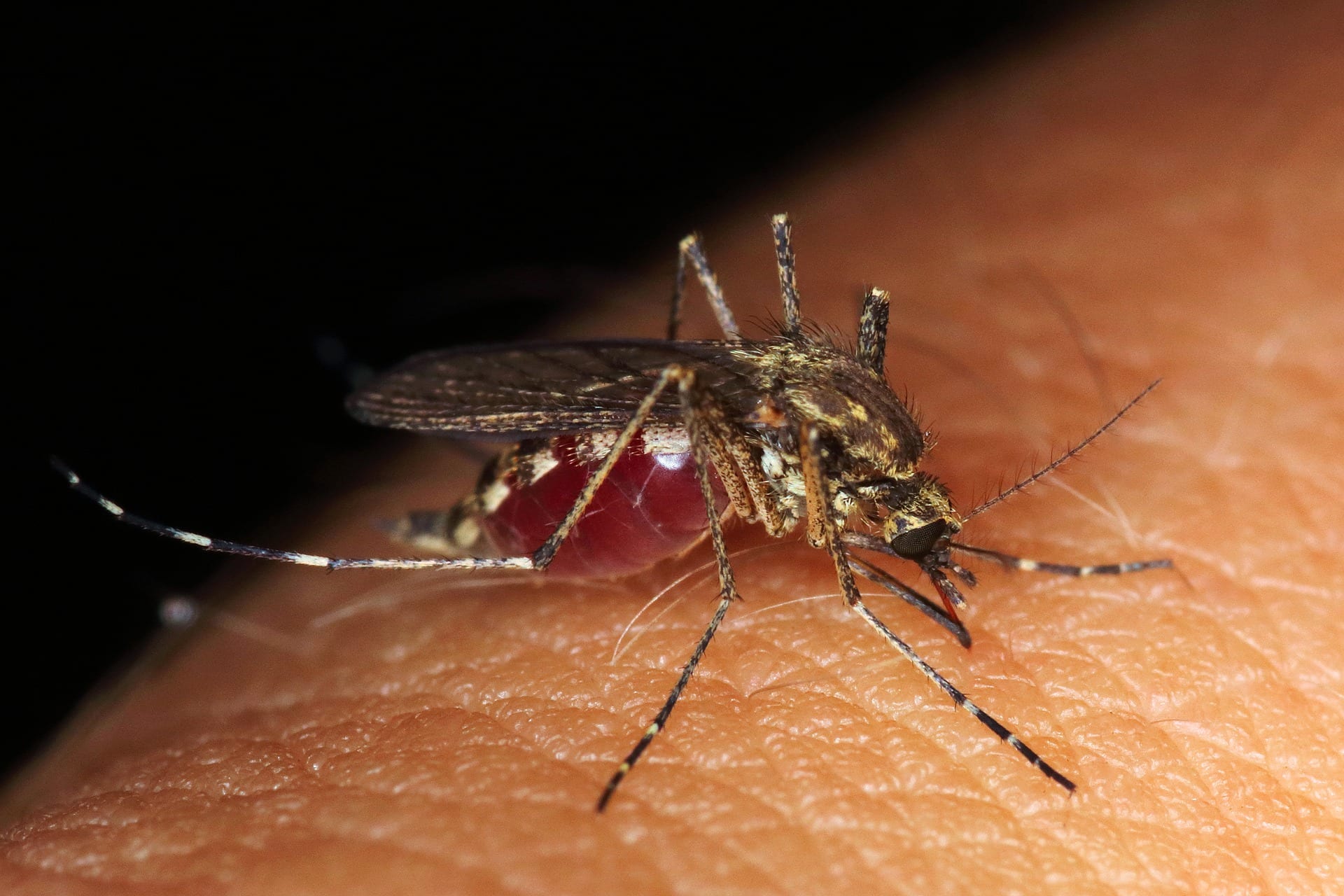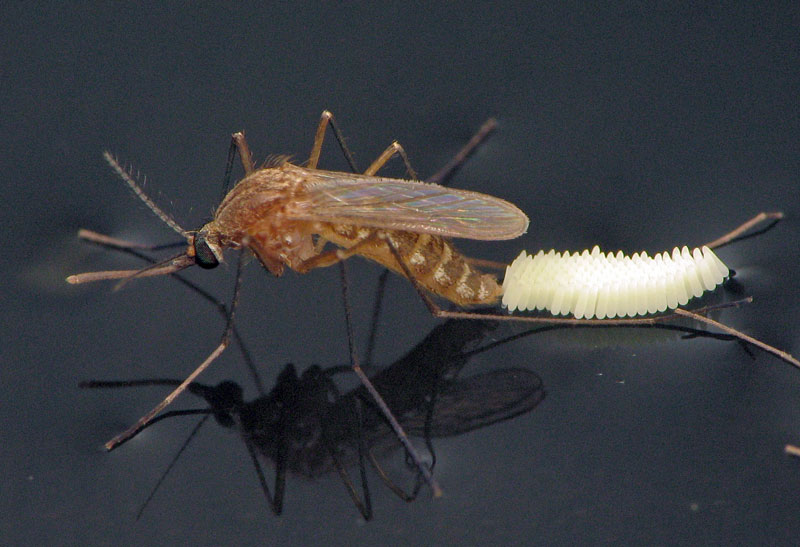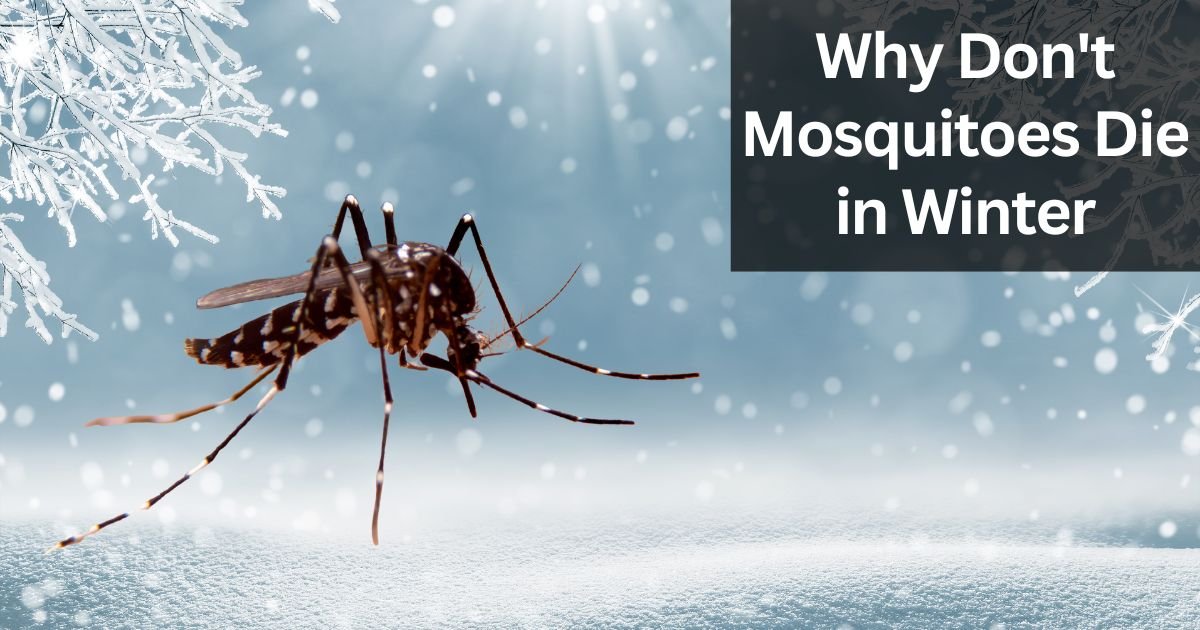Mosquitoes don’t die in winter because some hibernate and others lay eggs that survive. In colder temperatures, mosquitoes enter a hibernation-like state to survive through winter.
Despite the misconception that all mosquitoes perish in winter, some species have developed strategies to endure the cold months. These resilient insects can lay eggs that withstand freezing temperatures, ensuring the survival of their species. Additionally, some mosquitoes hibernate in protected areas, waiting for warmer weather to become active again.
This ability to adapt and survive harsh winter conditions allows mosquitoes to persist year-round, ready to emerge when conditions become favorable again.
The Mosquito’s Winter Mystery
Mosquitoes are known to be pesky creatures, buzzing around and leaving itchy bites on our skin. But have you ever wondered why they seem to disappear during the colder months? It’s a fascinating phenomenon that can be explained by their unique biology and survival strategies. Let’s dive into the cold-blooded conundrum and hibernation habits of mosquitoes to uncover the secrets of their winter survival.
Cold Blooded Conundrum
Mosquitoes are ectothermic creatures, meaning their body temperature is regulated by their environment rather than internally. This makes them highly susceptible to temperature changes. As the temperature drops during winter, mosquitoes become less active and sluggish. However, contrary to popular belief, they don’t simply die off.
Instead, mosquitoes enter a state of hibernation to protect themselves from the harsh winter conditions. They have adapted to withstand cold temperatures by slowing down their metabolic rate and seeking shelter in protected areas.
Hibernation Habits
During winter, mosquitoes find refuge in various locations, depending on the species. Some species hibernate as adults, while others hibernate as eggs or larvae. Adult mosquitoes may seek shelter in tree bark crevices, hollow logs, or even inside houses and buildings.
Female mosquitoes that carry eggs can lay them in stagnant water before winter arrives. These eggs are equipped with special adaptations that allow them to survive freezing temperatures. They remain dormant until the weather warms up, and then they hatch into larvae when conditions are favorable.
It’s important to note that not all mosquito species hibernate during winter. Some species, particularly those found in tropical regions, may remain active all year round if the temperatures are warm enough.
So, the next time you wonder where mosquitoes disappear to during winter, remember that they are clever survivors. Through hibernation and adaptation, they ensure their species’ survival even in the coldest of seasons.

Credit: www.excelpestservices.com
Survival Tactics Of Mosquitoes
Mosquitoes are well-known for being a nuisance during the warmer months, but have you ever wondered how they manage to survive the cold, harsh winter? These relentless pests have developed a range of survival tactics that enable them to endure the frigid temperatures and bounce back when the weather warms up.
The Role Of Temperature
When the temperature drops, many mosquitoes become inactive and enter a state of hibernation to survive the winter. Some species, however, have developed a remarkable ability to withstand the cold. These cold-hardy mosquitoes have adapted to survive in freezing temperatures by producing a natural antifreeze in their bodies, allowing them to remain active even in the coldest conditions.
Egg-laying Strategies
Mosquitoes employ strategic egg-laying tactics to ensure the survival of their offspring through the winter. Certain species lay their eggs in areas that are likely to collect water, such as tree holes, and the eggs can remain dormant until the conditions are suitable for hatching. Additionally, some mosquitoes lay their eggs in water sources that may not freeze completely, ensuring the survival of the next generation.
The Lifecycle In The Cold
Have you ever wondered why mosquitoes seem to disappear during the winter months? Despite the chilly temperatures, these pesky insects have some survival tricks up their sleeves. Understanding the lifecycle of mosquitoes in the cold can help shed light on their ability to persist through the winter.
From Eggs To Inactivity
Mosquitoes go through a complete metamorphosis, including four stages: egg, larva, pupa, and adult. During the winter, the mosquito lifecycle experiences a slowdown due to the cold temperatures. Let’s take a closer look at each stage and how it is affected by winter.
Winter’s Impact On Development
Eggs: Some species of mosquitoes lay winter-hardy eggs in late summer. These eggs can withstand freezing temperatures and remain dormant until warmer conditions return. The eggs are often deposited in stagnant water sources, such as ponds or puddles, which provide protection from extreme cold.
Larvae and Pupae: The larvae and pupae stages are highly dependent on temperature for development. Cold temperatures slow down their growth and metabolic activity, prolonging their development time. This means that during the winter, mosquito larvae and pupae are less active and undergo a period of inactivity.
Adults: Adult mosquitoes also experience a decrease in activity during the winter. The cold temperatures make it difficult for them to fly and seek out blood meals. Instead, they find shelter in protected areas, such as tree bark crevices or in people’s homes. Some species may even enter a state of hibernation to conserve energy and survive the winter.
In conclusion, while mosquitoes don’t die in winter, their lifecycle is significantly impacted by the cold temperatures. By understanding their ability to adapt and survive during the colder months, we can better prepare ourselves for their return in the warmer seasons.
Mosquitoes’ Seasonal Adaptations
Mosquitoes have developed various strategies to survive the winter. While some species become inactive and hibernate, others lay eggs that can withstand harsh conditions. Additionally, stagnant water from winter storms or plant watering can provide a suitable environment for mosquito eggs to hatch and thrive.
Species-specific Survival
Mosquitoes have evolved species-specific strategies to survive winter. Some species hibernate as adults, while others lay hardy eggs that endure the cold.
Nature’s Preservation Mechanism
In winter, mosquitoes utilize nature’s preservation mechanisms. Eggs laid before winter can survive and hatch when conditions are suitable.
The Secret Of Overwintering
During winter, mosquitoes survive by hibernating or laying hardy eggs that can withstand the cold temperatures. Some species remain active in warmer climates, feeding on nectar and fruit juices. Mosquitoes play a crucial role in the ecosystem as a food source for various animals.
Embryonic Diapause
Mosquitoes survive winter by entering a state known as embryonic diapause.
Finding Refuge From Frost
During winter, mosquitoes find shelter in various protected locations to avoid freezing temperatures.

Credit: mosquitojoe.com
Myths And Misconceptions
During winter, mosquitoes don’t die because some species hibernate in cool weather to survive. Additionally, eggs laid in summer can hatch in stagnant water after a winter storm, allowing mosquitoes to thrive year-round. Their resilience and adaptability help them endure the colder months.
The Freezing Fallacy
One common misconception about mosquitoes is that they die off in the winter due to freezing temperatures. However, this is not entirely accurate. While some species of mosquitoes may become inactive and enter a state of hibernation during cooler weather, others have developed survival mechanisms to endure the winter months.
Misunderstood Mosquito Mortality
It’s often misunderstood that all mosquitoes perish in the winter. In reality, some mosquitoes are able to survive through the colder months by hibernating in various life stages, such as as embryos within hardy eggs or as adult mosquitoes in a state of dormancy. This enables them to endure the harsh conditions and emerge once temperatures become more favorable.
Impact On Ecosystems And Humans
Mosquitoes are known to be a nuisance to humans, but have you ever wondered why they don’t die off during winter months? Unlike some insects, mosquitoes have adapted well to survive in cold temperatures. While some species become inactive with the onset of cool weather and enter hibernation to live through the winter, others have winter hardy eggs and hibernate as embryos in eggs laid by the last generation of females in late summer. This adaptation allows them to survive the winter and emerge in the spring to continue their life cycle.
Predator-prey Dynamics
The impact of mosquitoes not dying in winter extends beyond just their own survival. Predator-prey dynamics are affected as well. Mosquitoes serve as a vital food source for birds, bats, and frogs, especially during winter months when other food sources are scarce. Without mosquitoes, these animals would struggle to find enough food to survive the winter. This could lead to a decline in their populations, which would have a ripple effect throughout the entire ecosystem.
Winter Bites And Disease
While it may seem like mosquitoes are not a threat during the winter months, they can still pose a risk to humans. Mosquitoes that carry diseases such as West Nile virus and dengue fever can survive the winter and emerge in the spring to continue spreading these diseases. Additionally, some species of mosquitoes can remain active during the winter if temperatures are warm enough. This means that people living in areas with mild winters are still at risk of being bitten by mosquitoes and contracting diseases.
In conclusion, the fact that mosquitoes don’t die off during winter has a significant impact on both ecosystems and humans. While they may be a nuisance, mosquitoes play an important role in the food chain and their survival is crucial for the survival of other animals. At the same time, it’s important to take precautions to protect ourselves from mosquito-borne diseases even during the winter months.

Credit: tepapa.govt.nz
Future Research And Control Measures
Mosquitoes are able to survive in winter due to various factors. Some species enter a state of hibernation, while others lay winter hardy eggs that can withstand the cold. Additionally, stagnant water, even from winter storms, provides a suitable environment for mosquito eggs to hatch and thrive.
Understanding these factors is crucial for future research and developing effective control measures to minimize mosquito populations during the winter months.
While we have some understanding of how mosquitoes survive the winter, much more research is needed to develop effective control measures. Advances in entomology offer hope for better understanding of mosquito biology, including their overwintering strategies. The following are some areas of research that hold promise for future control measures:
Advancements In Entomology
Entomologists are studying the unique adaptations that enable mosquitoes to survive the winter. One promising area of research is the study of how mosquitoes alter their metabolism to survive in cold temperatures. By understanding the molecular mechanisms that enable mosquitoes to survive the winter, scientists may be able to develop targeted control measures that disrupt these processes.
Preparing For The Thaw
Another important area of research is the study of how mosquitoes emerge from hibernation in the spring. Mosquitoes are known to be highly sensitive to changes in temperature and other environmental factors, and understanding these triggers may help control their populations. Researchers are also exploring the use of biological control agents, such as bacteria and fungi, to suppress mosquito populations. While much is still unknown about how mosquitoes survive the winter, ongoing research offers hope for more effective control measures. By understanding the unique adaptations that enable mosquitoes to survive in cold temperatures, scientists may be able to develop targeted control strategies that disrupt these processes. In the meantime, it’s important to take steps to protect yourself from mosquito bites during the winter months, such as by wearing protective clothing and using repellents.
Frequently Asked Questions
What Temperature Do Mosquitoes Die At?
Mosquitoes die at temperatures below 50°F, but some species hibernate during winter to survive.
Why Are There Still Mosquitoes In December?
Mosquitoes can still be present in December because they only need stagnant water to hatch and thrive. Eggs laid in the summer and fall can hatch in water that settles after a winter storm or from watering plants. Additionally, if it’s a warm enough winter, mosquitoes can remain active.
So, they don’t die in winter but may become less abundant.
What Do Mosquitoes Eat In The Winter?
Mosquitoes become inactive in cool weather and enter hibernation to survive the winter. Some species have hardy eggs that hatch in stagnant water after a winter storm. When active, they feed on plant nectar and fruit juices.
Conclusion
Mosquitoes are able to survive the winter by hibernating or laying winter-hardy eggs. While freezing temperatures can kill adult mosquitoes, some species have evolved to withstand the cold by entering a state of dormancy. Additionally, mosquitoes can still thrive in stagnant water that settles after winter storms or from watering plants.
Understanding the survival mechanisms of mosquitoes can help us better control their populations and reduce the spread of diseases they carry.
Related posts:

I’m MD Tanvir, and I bring years of expertise gained from working closely with pest control companies to the forefront. My journey in the industry has inspired me to launch Bug Battler, a platform aimed at equipping people with the know-how to combat pests autonomously. Through Bug Battler, I aim to empower individuals with practical insights to tackle pest infestations effectively.

